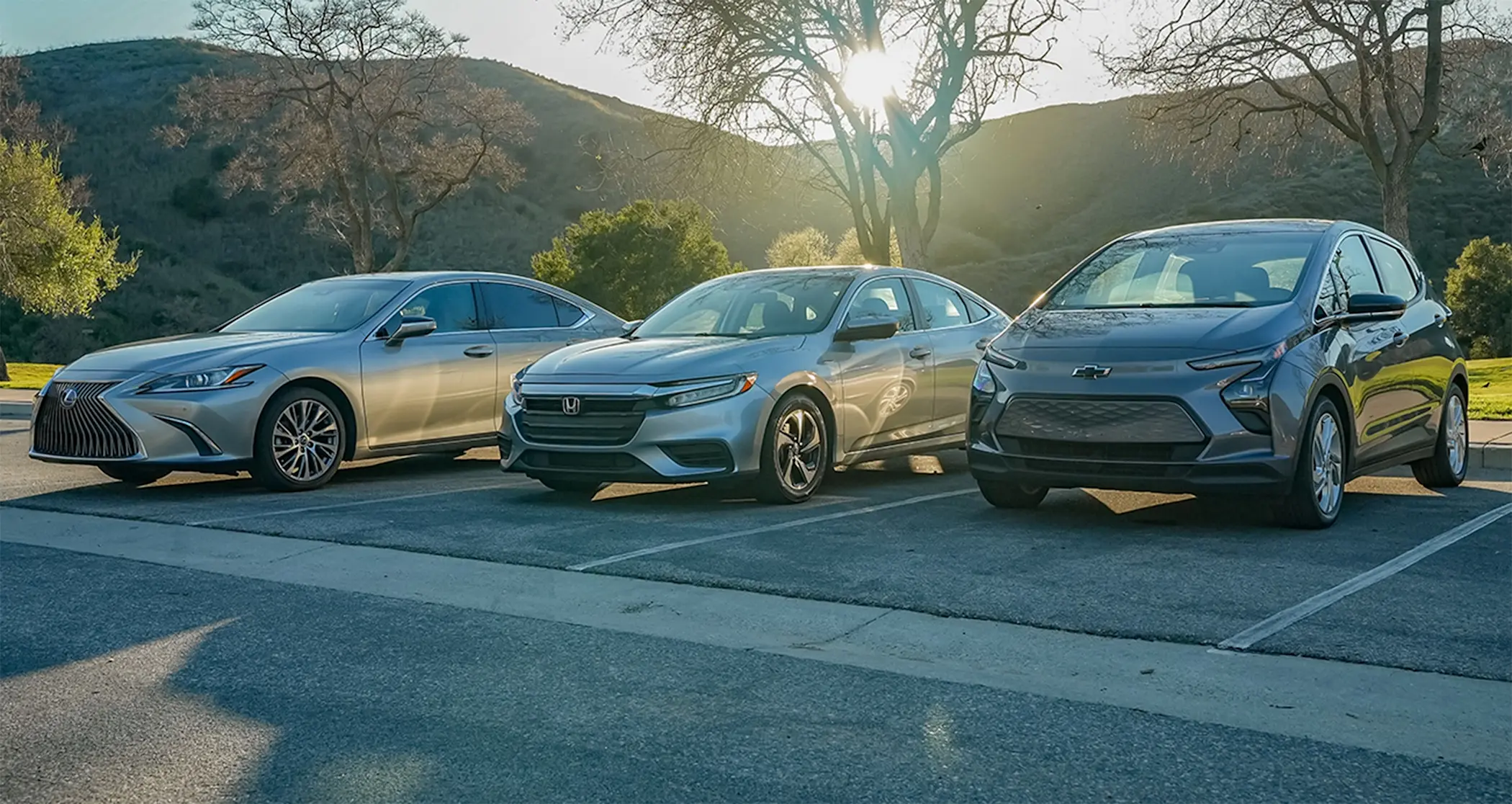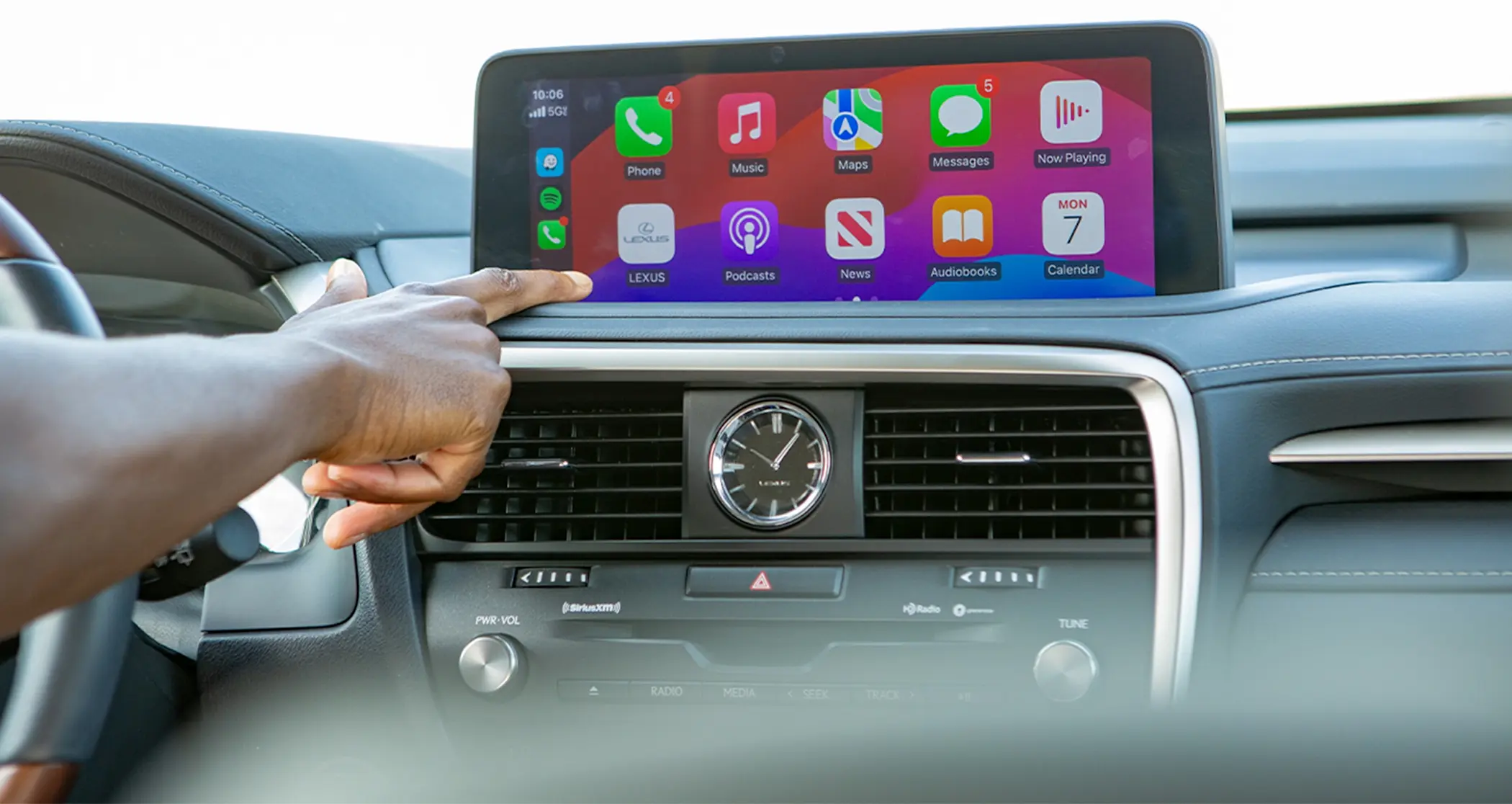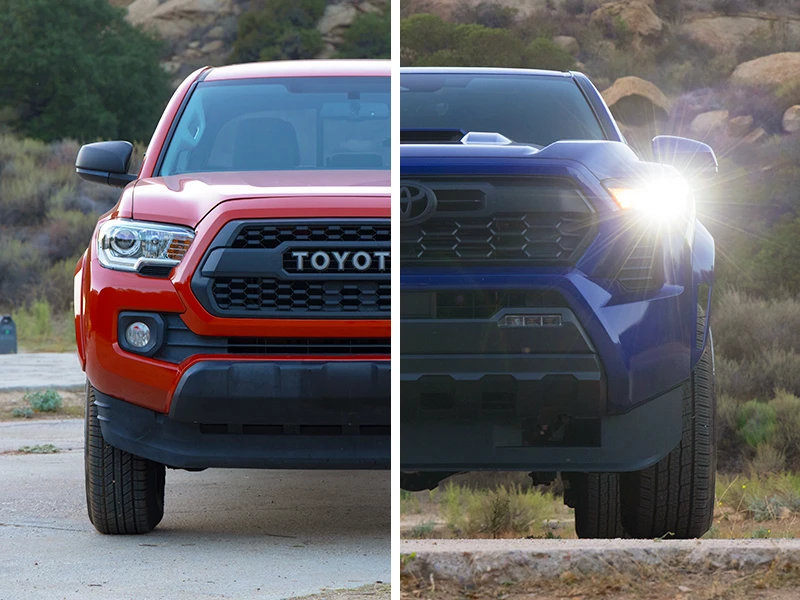
What makes a great car for a daily commute?
With thousands of vehicles in our inventory, we’re here to help make car research easier for you. We’ve partnered with car-review experts from Edmunds to weigh in on what matters most when you’re looking to buy a truck or car.
***
Sports cars and SUVs get a lot of attention, but let's pause a moment to sing the praises of the humble commuter cars that get good fuel economy, are easy to drive and park, and are easy on the wallet.
But what makes the best commuter car? Is it just fuel economy? Or does the best daily driver car emphasize creature comforts like a killer audio system? The good news is that these days the best commuter cars don't skimp on features or comfort. Let's take a closer look at what you should seek out in a daily driver, and a few smart picks.

Commuter Car Essentials
If you're considering a car that's going to be used mostly for your daily drive to work, there are some key areas you should think about.
Fuel economy
Big SUVs are popular because they're comfy and can tow, but they're also thirsty. For example, a Chevrolet Tahoe full-size SUV with a 5.3-liter V8 gets an EPA-estimated 17 mpg in combined city/highway driving. By contrast, a Chevrolet Equinox gets 27 mpg combined
. That 9 mpg difference means an estimated savings of about $1,000 per year just in fuel. A Tahoe is certainly a nice vehicle, but you're not going to be using its towing and towing capabilities if you're just driving yourself to work. You can also find hybrid versions of many popular vehicles that get even better mpg.Then there are electric vehicles. If you're driving an EV, you're using zero gas, and if you're smart about charging up at home each night, a low-range EV can make a good commuter car.
Vehicle size
Consider getting a smaller vehicle if you live in a crowded city or have to park in parking lots with small spaces. Their small size makes it easier to maneuver through traffic, and city parking spots are often small so a compact vehicle can take advantage with less risk of getting dinged in a tight parking lot. Of course, smaller cars are also easier to parallel park on a city street. . If you have a family, size matters too. But if your carpool includes little passengers in multiple car seats, take a look at our cars that fit three car seats for wider options that make family travel easier.
Comfort and noise
You're going to want to be comfortable, so sit for a long time in your prospective commuter car to see if the seat fits you well and if they adjust to your liking. Also think about surfaces your elbows and knees will rest on. Are they soft? Or will those contact points get sore over time? Climate control is another consideration, not just how strong it is but also how easy it is to use. Knobs and buttons are easier if you frequently adjust your temperature or airflow, so avoid systems that integrate too much into the touchscreen. If your commute occasionally turns into a weekend road trip, explore our best vehicles for camping for comfortable, spacious options that make long drives and overnight adventures more enjoyable.
Driver-assist systems
Modern vehicles can give you a helping hand when you drive, and one of our favorite driver-assist systems is adaptive cruise control with low-speed following. Once you set a speed, radar or camera sensors monitor if there's a vehicle ahead of you. If so, adaptive cruise control will automatically brake and slow down to stay a set distance behind the vehicle. Once it's out of the way, the adaptive cruise system will automatically accelerate to get you back up to the speed you want. It certainly helps take some of the work out of driving, especially in congested highway traffic. Low-speed following even brings your car to a full stop and resumes when traffic begins to move again. Many of the vehicles featured in our best cars for teens guide include similar driver-assist systems designed to help new drivers stay alert and comfortable on the road.

Infotainment
Two things to consider in an infotainment system are audio quality and ease of use. If you're stuck in traffic, you're going to listen to music or podcasts, and a system that provides clean crisp audio—or funky bass—will help the time fly. Also look for a touchscreen that's easy to use. Many modern carmakers put too many features in the touchscreen, making it difficult to do simple things like adjust the volume or change audio tracks, so look for physical buttons and knobs for those functions. Of course, these days it's hard not to live without smartphone integration like Apple CarPlay® and Android Auto™, which mirror your phone's functions on the touchscreen.
Keith's take
Living in Los Angeles, the commuting capital of the world, I've grown to appreciate adaptive cruise control on my daily drives. Of course, these are driver-assist systems, so you need to pay attention, but it takes some of the strain off stop-and-go traffic and reduces my stress. Combine that with some tunes through a great audio system, and you have the makings of a darn fine commuter car.
Vehicle Choices
Now that you know what to look for, what are some ideal choices? The good news is that you aren't limited to econoboxes, and even if you do go that route, today's economy cars are light-years ahead of their predecessors.

2019-2022 Honda Insight
The Honda Insight is, mechanically speaking, a hybrid Civic. That means you get all the features that we liked about the previous-generation Honda Civic, such as a suspension that easily smooths bumps in the road and plentiful driver-assist features like adaptive cruise control. Look for EX and Touring trims to get an audio system with smartphone integration. Best of all, the Honda Insight will rarely visit gas stations thanks to excellent EPA-estimated combined fuel economy of up to 52 mpg when it was new
.Other considerations would be the Toyota Corolla Hybrid or Toyota Prius, both of which are excellent ways to avoid the gas pumps, although we think the Insight has the edge in refinement.

2017-2023 Chevrolet Bolt
If you want an electric car to avoid the pumps entirely while still driving something modern, comfortable, and affordable, take a look at the Chevrolet Bolt. When new, the Bolt had a maximum EPA-estimated range of almost 260 miles
. While that's not enough for a cross-country road trip, it's plenty for most commutes, and charging at home means you'll almost never need to use public charging. The Bolt also comes standard with smartphone integration, and certain trims are available with adaptive cruise control and a pretty decent sound system.If the Bolt isn't your style, the Nissan Leaf SV is another inexpensive EV alternative with many of the same features as the Bolt. Just note that the Leaf's range isn't quite as generous as the Chevy's, meaning more frequent charging.

2019-present Lexus ES
If you want your commute to be a little more bougie, the Lexus ES 300h surrounds its driver with opulent leather, an excellent audio system — look for the Mark Levinson label on the dash—and the kind of quiet and comfort that Lexus has built its reputation on. Driver-assist systems come standard, and topping it off, the "h" in the car's name means it's a hybrid, with an EPA-estimated 44 mpg combined when it was new. Look for 2020 and newer models if you want smartphone integration. Just note that the ES is a midsize car, so it's not quite as maneuverable as some others, but that's a small price to pay.
If you like the idea of a larger car with excellent fuel economy but maybe don't need the luxury trappings, the Toyota Camry Hybrid is mechanically very similar to the Lexus. Another alternative is the Honda Accord Hybrid, which also delivers a refined driving experience and excellent fuel economy.
What's Most Important?
Exactly what features are most important to making the perfect commuter car is up to you. If you want to avoid the pumps no matter what, there are plenty of affordable EVs out there. On the other hand, maybe you want to relax in serene comfort, in which case a comfortable and quiet cabin would take priority (especially if you’re driving with pets). The good news is that even if you emphasize one feature, you don't necessarily leave the others on the cutting-room floor.




